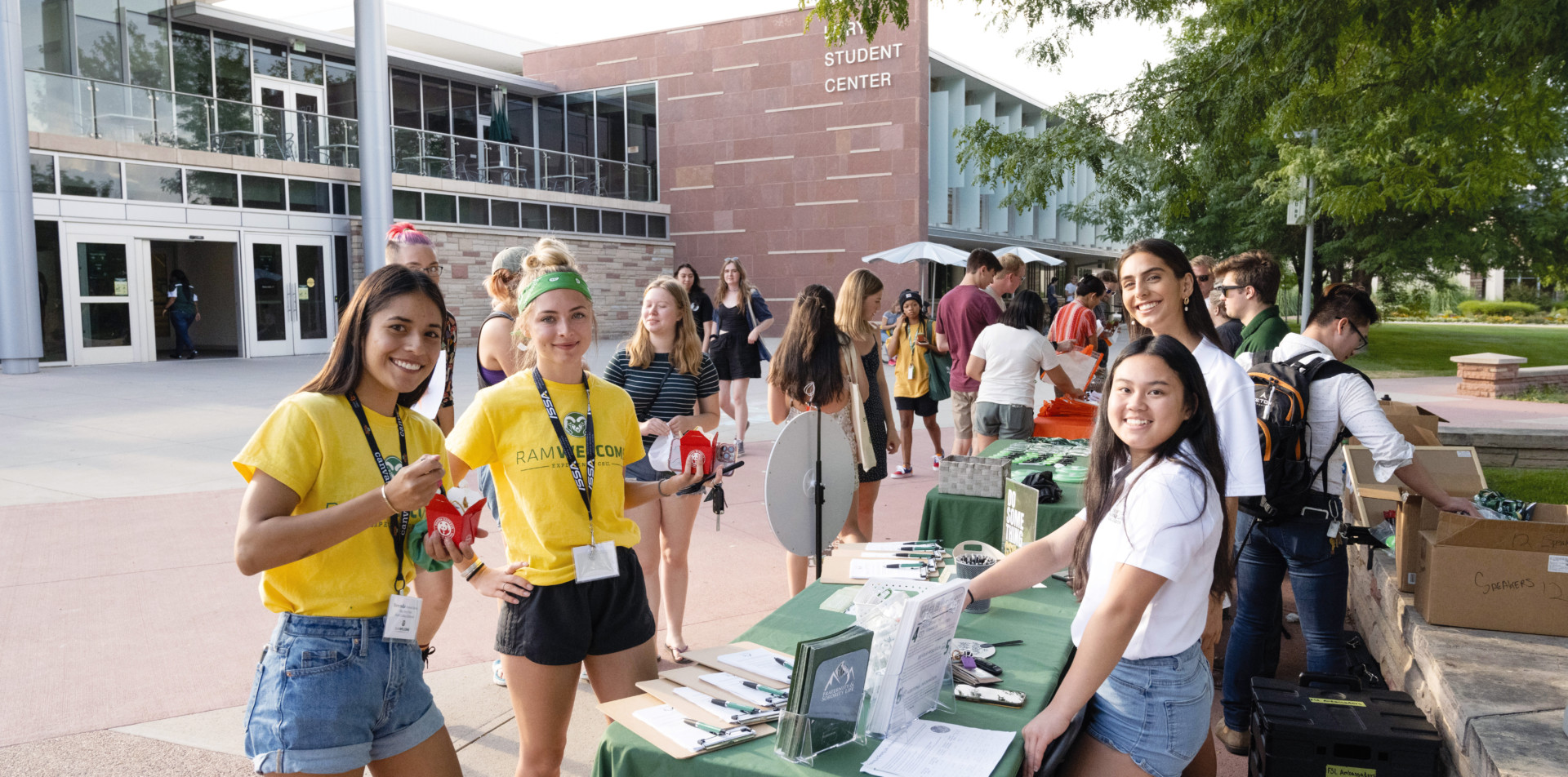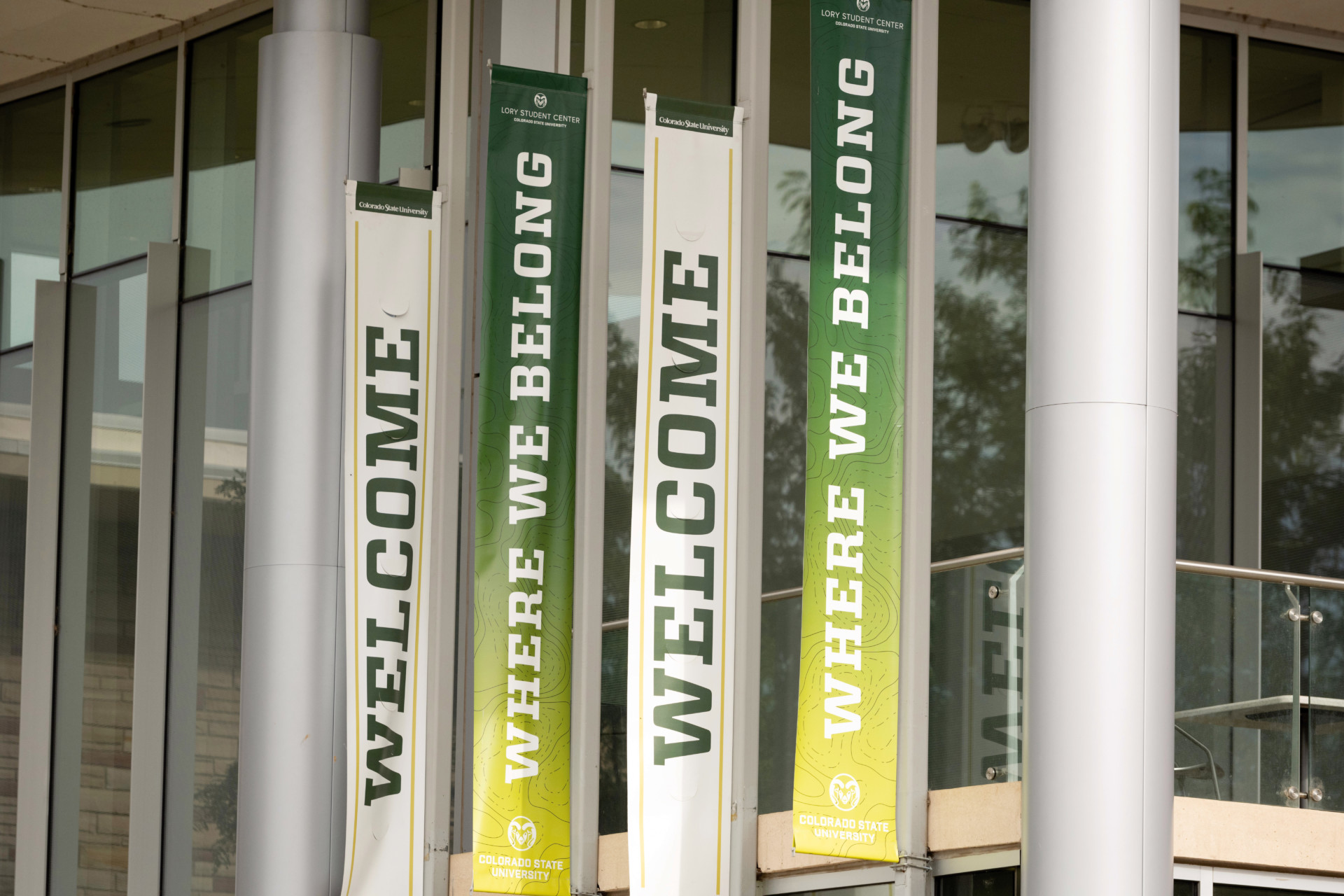
Colorado State University recently issued a guide to help students, faculty and staff better understand free speech and the First Amendment to the Constitution.
The guide, titled “Talk, Talk, Talk: A Quick Guide to Free Speech at Colorado State University,” was published as an insert in the Aug. 25 print edition of the Rocky Mountain Collegian and is part of an ongoing commitment to sharing resources and information about the rights and responsibilities of free speech and expression. Volunteers will also hand out copies of the guide as they staff tables on the Lory Student Center Plaza this fall to answer questions and have informal discussions about the First Amendment with members of the CSU community.
The guide builds on the activities of a First Amendment Working group, which was charged by former CSU President Joyce McConnell last year to examine CSU policies, practices, and communications related to free speech. Interim President Rick Miranda met recently with leaders of the working group to review recommended action items and discuss how to move them forward.
Some excerpts of the guide are below, and the full version is available online. Additional information can be found at the CSU System’s “Your Voice. Your Vote. Your Rights” website. Information on bystander intervention strategies and student support resources are also available online, as is CSU’s policy on free speech and peaceful assembly.
Text of the First Amendment
“Congress shall make no law respecting an establishment of religion or prohibiting the free exercise thereof; or abridging the freedom of speech, or of the press; or the right of the people peaceably to assemble, and to petition the Government for a redress of grievances.”
Passed by Congress Sept. 25, 1789
Ratified Dec. 15, 1791
When is speech not protected under the First Amendment?
- When it’s used to incite a breach of the peace.
- When it fits into a category of unprotected speech or involves criminal conduct.
- When non-verbal symbols are used to encroach on or desecrate private property.
- Acts of physical violence and threats.

Frequently asked questions
Q: If a speaker on the Plaza says something hateful, can’t CSU tell them to stop?
A: No. The Plaza is a public free-speech zone where people can exercise their right to free speech, and CSU, as a public university, can’t interfere with that right.
Q: If someone is holding an event on campus, can I protest it?
A: The university acknowledges the right of students and others to assemble in groups at certain locations on the university campus for peaceful rallies, counter demonstrations, and gatherings, so long as the act doesn’t unreasonably interfere with the rights of others to peaceably assemble or to exercise their right of free speech, disrupt the normal functioning of the university, damage property, or endanger the health or safety of oneself and others.
Q: If people are bothering me near my residence hall, can I tell them to stop?
A: Like classrooms, residence halls are considered non-public areas, even at public universities. The courts have ruled that in these spaces, and on the sidewalks leading up to them, students have the right to be left alone from unwanted speech – in the same way that someone living off campus has the right to decide who gets to come into their home and talk to them.
Q: I think someone crossed the line into unprotected hate speech at CSU. How do I report it?
A: CSU offers a bias reporting website that is open to everyone at biasreporting.colostate.edu. All reports receive a thoughtful review by a campus team well-trained in the First Amendment and bias incident response.
Q: If a speaker has created significant unrest or disturbances at other institutions, does that allow the university to deny their ability to speak?
A: No, as a public university CSU will do everything in its power to support the right to free speech and peaceful assembly, though reasonable restrictions around time, place, and manner may be enacted.
Q: Can the university take action if someone posts offensive or false messages on social media?
A: CSU, as a public university, generally can’t control what you post on your private social media channels, but the First Amendment does not apply to private actors, including those companies that operate private social media sites, in the same way. A private business owner or citizen has the ability to control their private space as they see fit. If a business owner, roommate, or friend asks you not to say something in their private space, they have that right – they’re not the government. So it’s important to think about how we talk to each other.